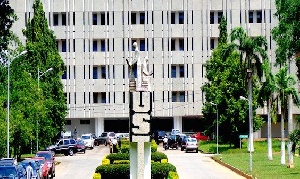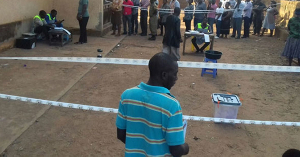The Department of Fisheries and Watershed Management, Kwame Nkrumah University of Science and Technology (KNUST), is leading efforts at increasing the nation’s fish production levels, to substantially boost household incomes.
It is doing this through aggressive promotion of reservoir cage farming to transform aquaculture practices under a project dubbed “Cage Aquaculture in Northern Ghana: Enhancing Food Security and Livelihoods”.
The Australian government is providing the funding.
A report from the Department, a copy was made available to the Ghana News Agency (GNA) said the goal is to increase fish production in that part of the country by about 300 per cent.
The farmers would be introduced to cage construction, commercial fish production, marketing, proper farm inventories and management.
The project also has a component on comprehensive training of farmers in record-keeping, cage netting and sewing, and frames fabrication.
The Ghana Irrigation Development Authority (GIDA) is collaborating with the department on the implementation.
The report said some identifiable farmer groups and decentralized assemblies within the Bontanga, Golinga and Ligba irrigation reservoirs catchment areas are the other partners.
The project, which commenced last year, had as of July, this year, procured fingerlings for growth trials in ponds at Bontanga, Golinga and Ligba, and trained six District Fisheries Extension Officers.
Added to this is the completion of an environmental and social impact assessment report on reservoir cage culture.
The report said the project had the overall objective of establishing a hapa-based tilapia hatchery for the production of 30, 000 fingerlings per month in Northern Ghana.
It said this was intended to grow fish for local consumption and exports, enhance food security and employment, while reducing poverty in the beneficiary communities.
Separately, the University is working in partnership with University of Pine Bluff, Arkansas in the United States (US), to enhance the nutritional value of tilapia for human health.
The project had so far conducted a survey to determine the availability and distribution of potential fish feed ingredients containing Omega-3 fatty acids and other beneficiary fatty acids in tilapia.
Dr. Regina Edziyie of the Department of Fisheries and Watershed Management, told the Ghana News Agency (GNA) that the expected outcomes included information on nutritional composition of local ingredients, improvement in proximate and fatty acid composition in tilapia to boost the health of consumers.
Business News of Thursday, 10 August 2017
Source: Ghana News Agency
KNUST leads effort to boost nation’s fish production
Entertainment












